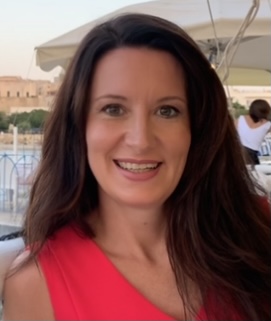Studiare
In questa sezione è possibile reperire le informazioni riguardanti l'organizzazione pratica del corso, lo svolgimento delle attività didattiche, le opportunità formative e i contatti utili durante tutto il percorso di studi, fino al conseguimento del titolo finale.
Calendario accademico
Il calendario accademico riporta le scadenze, gli adempimenti e i periodi rilevanti per la componente studentesca, personale docente e personale dell'Università. Sono inoltre indicate le festività e le chiusure ufficiali dell'Ateneo.
L’anno accademico inizia il 1° ottobre e termina il 30 settembre dell'anno successivo.
Calendario didattico
Il calendario didattico indica i periodi di svolgimento delle attività formative, di sessioni d'esami, di laurea e di chiusura per le festività.
| Periodo | Dal | Al |
|---|---|---|
| Sem. 1A | 27-set-2021 | 6-nov-2021 |
| Sem. 1B | 15-nov-2021 | 12-gen-2022 |
| Sem. 2A | 14-feb-2022 | 26-mar-2022 |
| Sem. 2B | 4-apr-2022 | 4-giu-2022 |
| Sessione | Dal | Al |
|---|---|---|
| Sessione Invernale | 10-gen-2022 | 12-feb-2022 |
| Sessione estiva | 6-giu-2022 | 23-lug-2022 |
| Sessione autunnale | 29-ago-2022 | 24-set-2022 |
| Sessione | Dal | Al |
|---|---|---|
| Sessione estiva | 11-lug-2022 | 16-lug-2022 |
| Sessione autunnale | 7-nov-2022 | 12-nov-2022 |
| Periodo | Dal | Al |
|---|---|---|
| FESTIVITA' OGNISSANTI | 1-nov-2021 | 1-nov-2021 |
| Vacanze di Natale | 25-dic-2021 | 6-gen-2022 |
| VACANZE DI PASQUA | 15-apr-2022 | 19-apr-2022 |
| Festa della Liberazione | 25-apr-2022 | 25-apr-2022 |
| FESTA DEL LAVORO | 1-mag-2022 | 1-mag-2022 |
| Festività Santo Patrono di Verona | 21-mag-2022 | 21-mag-2022 |
Calendario esami
Gli appelli d'esame sono gestiti dalla Unità Operativa Segreteria Corsi di Studio Scienze Umane.
Per consultazione e iscrizione agli appelli d'esame visita il sistema ESSE3.
Per problemi inerenti allo smarrimento della password di accesso ai servizi on-line si prega di rivolgersi al supporto informatico della Scuola o al servizio recupero credenziali
Docenti
 tamara.bastianello@univr.it
tamara.bastianello@univr.it
 cristina.bertazzoni@univr.it
cristina.bertazzoni@univr.it
 andrea.ghidini@univr.it
andrea.ghidini@univr.it
 stefania.pontrandolfo@univr.it
stefania.pontrandolfo@univr.it
 massimo.recalcati@univr.it
massimo.recalcati@univr.it
 sorayaelizabeth.shamloo@univr.it
sorayaelizabeth.shamloo@univr.it
 marco.ubbiali@univr.it
marco.ubbiali@univr.it
Piano Didattico
Il piano didattico è l'elenco degli insegnamenti e delle altre attività formative che devono essere sostenute nel corso della propria carriera universitaria.
Selezionare il piano didattico in base all'anno accademico di iscrizione.
1° Anno
| Insegnamenti | Crediti | TAF | SSD |
|---|
Lingua straniera b22° Anno Attivato nell'A.A. 2022/2023
| Insegnamenti | Crediti | TAF | SSD |
|---|
| Insegnamenti | Crediti | TAF | SSD |
|---|
Lingua straniera b2| Insegnamenti | Crediti | TAF | SSD |
|---|
| Insegnamenti | Crediti | TAF | SSD |
|---|
Legenda | Tipo Attività Formativa (TAF)
TAF (Tipologia Attività Formativa) Tutti gli insegnamenti e le attività sono classificate in diversi tipi di attività formativa, indicati da una lettera.
Filosofia e dialogo socratico (2022/2023)
Codice insegnamento
4S008178
Docente
Coordinatore
Crediti
6
Lingua di erogazione
Italiano
Settore Scientifico Disciplinare (SSD)
M-FIL/07 - STORIA DELLA FILOSOFIA ANTICA
Periodo
Sem. 2A dal 13-feb-2023 al 30-mar-2023.
Obiettivi di apprendimento
Conoscenza e comprensione 1. Conoscere e comprendere il legame profondo tra la figura di Socrate e la pratica del dialogo maieutico. 2. Conoscere e comprendere l’attualità pedagogica della “paideia” classica, in particolare del modo in cui è intesa e praticata da Socrate nei dialoghi platonici e nella letteratura socratica in generale. 3. Conoscere e comprendere alcuni elementi fondamentali del dialogo socratico: la ricerca di senso, l’ironia, la confutazione, il paradosso, il richiamo alla cura di sé e alla dimensione valoriale della vita nella “polis”. Capacità di applicare conoscenza e comprensione 1. Interpretare il significato teoretico del dialogo socratico nel contesto comunicativo contemporaneo, cogliendone elementi non solo di diversità di contesti, ma anche di continuità nelle problematiche di fondo. 2. Ripensare e riformulare il dialogo educativo, come communente inteso oggi, alla luce del modo di dialogare socratico, che si ricava dalla lettura dei dialoghi platonici e dalla letteratura socratica. 3. Ripensare il profilo professionale e lo stile di vita dell’educatore e del pedagogista alla luce del modo di pensare e di agire che si ricava dai dialoghi platonici e dalla letteratura socratica.
Prerequisiti e nozioni di base
La conoscenza preliminare della storia della filosofia antica e medievale e del greco antico e latino è certo una facilitazione, ma non è obbligatoria. Sono richiesti piuttosto attenzione all’indagine lessicale e inclinazione alla lettura critica del testo filosofico.
Programma
Titolo e contenuto del corso: “Paideia e dialogo socratico”
Il corso si propone di esaminare le modalità educative implicite nel dialogo socratico (interrogazione, esame, confutazione, cura di sé, ironia, maieutica, logica, dialettica) negli allievi diretti di Socrate (soprattutto in Platone, ma anche in Aristippo, Eschine, Fedone e Senofonte). Verranno indagate le linee di continuità e di discontinuità tra la prassi dialogica attuata da Socrate e la nozione greca di paideia, con riferimento non soltanto alla vita dell'Atene del V e del IV secolo a.C., ma anche alla ricezione e all’applicazione del dialogo socratico in alcune pratiche educative contemporanee (Philosophy for Children, Cooperative Learning e Problem-Based Learning).
Il corso sarà completato dalla lettura condivisa, svolta in chiave laboratoriale, di momenti dialogici tratti dalla letteratura socratica: tale momento di confronto implicherà la partecipazione attiva alla discussione delle posizioni sostenute nel testo e, ove possibile, un’applicazione pratica dei presupposti educativi del dialogo socratico.
TESTI D’ESAME:
A) L. Napolitano, Il dialogo socratico, Milano, Mimesis 2018 (a scelta un autore moderno nella prima parte del libro; obbligatoria l’intera seconda parte del volume).
B) A. Stavru, Socrate e la cura dell'anima, Milano, Marinotti 2009.
C) Dispense contenenti:
1. Unità dialogiche dei Socratici di prima generazione Aristippo, Eschine, Fedone e Senofonte.
2. W. Jaeger, capitolo su 'Socrate' contenuto in Id., Paideia, vol. III (Bompiani, Milano 2003).
3. L. Mortari, Conoscere se stessi per aver cura di sé, in: "Studi sulla formazione," 2 (2008), pp. 45-58.
4. James Ambury, Dialectical Epimeleia, in: "Plato Journal", 17, pp. 85-99.
(obbligatori i testi 1. e 2.; a scelta uno dei testi tra 3. e 4.)
Le dispense sono reperibili sulla pagine Moodle del corso e, in forma cartacea, presso la copisteria ateneo æmme edizioni, Lungadige Porta Vittoria, 37.
Le lezioni registrate saranno disponibili sulla piattaforma Moodle e sono parte integrante del programma d’esame. NB: l'ascolto delle registrazioni non sostituisce la lettura dei testi in programma.
PROGRAMMA PER NON FREQUENTANTI:
Il programma per non frequentanti è identico a quello per frequentanti, tranne che per il volume di L. Napolitano "Il dialogo socratico", che dovrà essere portato per intero.
Bibliografia
Modalità didattiche
L'insegnamento viene svolto in modalità frontale. Le lezioni vengono proiettate via streaming (link Zoom disponibili sulla pagina Moodle del corso). Le registrazioni vengono collocate sulla pagina Moodle del corso alla fine di ciascuna lezione. NB: l'ascolto delle registrazioni non sostituisce la lettura dei testi in programma.
Riguardo alle modalità di richiesta di supporto da parte di studentesse e studenti in isolamento, è stata aggiornata la pagina web coronavirus Info studenti. Cliccando alla voce “Lezioni, esami di profitto e di laurea – modulo di richiesta cambio data/materiale didattico integrativo”, le studentesse e gli studenti possono scaricare il modulo per autocertificare la propria positività e richiedere alla/al docente il materiale integrativo.
Le studentesse e gli studenti in situazioni particolari di fragilità, impossibilitati a frequentare le lezioni per condizioni di disabilità o disturbi di apprendimento particolarmente invalidanti, sono invitati a contattare il “Servizio Inclusione e accessibilità”, che valuterà caso per caso la effettiva impossibilità di frequenza e concorderà con i docenti interessati le modalità di supporto.
Modalità di verifica dell'apprendimento
Metodo didattico: Il corso sarà tenuto secondo modalità conformi alle disposizioni di Ateneo in materia di COVID-19. Sono previste lezioni frontali e seminariali con lettura diretta di testi e successiva discussione comune; perciò è utile e dunque auspicabile, benché ovviamente non obbligatoria, la frequenza. Data l'imprevedibilità dell'evolversi della situazione igienico-sanitaria, sono previste modalità didattiche via panopto/elearning/zoom, le quali verranno caricate sulla piattaforma Moodle e potranno (in base alle disposizioni di Ateneo) eventualmente sostituire la didattica in presenza.
Ricevimento: Durante tutto l’anno accademico il docente riceve o presso il suo studio, o via e-mail o in modalità telematica Zoom o Skype, negli orari indicati sulle pagine web o in orari concordati col docente (specialmente nel caso di incontri telematici).
Modalità di valutazione: Lo studente verrà interrogato oralmente in presenza o via Zoom (a seconda dell'evolversi della situazione sanitaria). Gli studenti potranno - in modo facoltativo - preparare un percorso di esame a partire da un argomento a loro scelta, il quale diverrà il punto di partenza per la prova orale (detta scelta dovrà essere comunicata al docente via mail almeno una settimana prima della data dell'esame).
Criteri di valutazione
Capacità di organizzare e articolare discorsivamente le conoscenze acquisite; capacità di ragionamento critico sugli argomenti di studio; qualità, profondità e coerenza dell’esposizione, competenza nell’impiego della terminologia e del lessico specialistico.
Criteri di composizione del voto finale
Il voto è in trentesimi.
Lingua dell'esame
Italiano
Tipologia di Attività formativa D e F
I 9 crediti liberi a scelta dello studente (ambito “D”) hanno lo scopo di offrire allo studente la possibilità di personalizzare il proprio percorso formativo permettendo di approfondire uno o più argomenti di particolare interesse legati al proprio percorso accademico.
Per garantire questo fine, si invitano gli studenti a rispettare le seguenti indicazioni per il completamento di tale ambito:
- almeno un’attività formativa erogata come esame universitario (con relativo voto in trentesimi);
- massimo 6 cfu relativi a competenze linguistiche (oltre a quelli previsti dal PdS);
- massimo 6 cfu relativi a competenze informatiche (oltre a quelli previsti dal PdS);
- massimo 4 cfu di tirocinio, (oltre a quelli previsti dal PdS);
- massimo 6 cfu di attività laboratoriale/esercitazioni (compresi quelli previsti nei PdS per l’ambito) di regola viene riconosciuto 1 cfu ogni 25 ore di attività;
- massimo 6 cfu di attività seminariale/convegni/cicli di incontri/formative in genere (sia accreditata dal Dipartimento di Scienze Umane che extrauniversitaria) – di regola viene riconosciuto 1 cfu ogni 8 ore di partecipazione e/o 2 giornate salvo diversamente deliberato;
- non vengono valutate attività svolte in Erasmus non inserite nei Learning Agreement.
COMPETENZE TRASVERSALI
Scopri i percorsi formativi promossi dal Teaching and learning centre dell'Ateneo, destinati agli studenti iscritti ai corsi di laurea, volti alla promozione delle competenze trasversali:
https://talc.univr.it/it/competenze-trasversali
| anni | Insegnamenti | TAF | Docente |
|---|---|---|---|
| 1° 2° | Summer School: Human Sciences and Society - (HSaS) | D |
Massimiliano Badino
(Coordinatore)
|
| anni | Insegnamenti | TAF | Docente |
|---|---|---|---|
| 1° 2° | Introduzione alla robotica per studenti di materie umanistiche | D |
Paolo Fiorini
(Coordinatore)
|
Prospettive
Avvisi degli insegnamenti e del corso di studio
Per la comunità studentesca
Se sei già iscritta/o a un corso di studio, puoi consultare tutti gli avvisi relativi al tuo corso di studi nella tua area riservata MyUnivr.
In questo portale potrai visualizzare informazioni, risorse e servizi utili che riguardano la tua carriera universitaria (libretto online, gestione della carriera Esse3, corsi e-learning, email istituzionale, modulistica di segreteria, procedure amministrative, ecc.).
Entra in MyUnivr con le tue credenziali GIA: solo così potrai ricevere notifica di tutti gli avvisi dei tuoi docenti e della tua segreteria via mail e anche tramite l'app Univr.
Tutorato per gli studenti
Tutti i docenti del Corso di Studio possono fornire una forma di tutorato volta ad orientare e assistere gli studenti lungo tutto il corso degli studi.
Le matricole, gli studenti che si approcciano al tirocinio, gli studenti in uscita e tutti gli studenti che manifestano difficoltà nel loro percorso di studi possono contattare i docenti indicati come tutor del corso di laurea magistrale in Scienze pedagogiche:
- prof.ssa Antonia De Vita (Referente);
- prof. Daniele Loro.
Nel quadro del programma di TUTORATO, il Dipartimento di Scienze Umane ha inoltre deciso di utilizzare l’esperienza di alcuni iscritti al Dottorato di Scienze Umane per offrire un supporto che sia il più vicino possibile a chi frequenta il CdS magistrale, sulla base della loro diretta esperienza.
Tali Tutor studenteschi forniranno un servizio di orientamento, sia in ingresso (vòlto a favorire un migliore inserimento nei Corsi di Studio, ovviando alle difficoltà e agli ostacoli che il passaggio dalla Triennale alla Magistrale, inevitabilmente comporta), sia in itinere, così da offrire un servizio di sostegno che sappia adeguatamente interpretare e rispondere alle esigenze di formazione e professionalizzazione di chi frequenta il CdS.
Tra i compiti e le attività previste vi sono:
- Supporto ad indagini sugli iscritti al CdS, volte a individuare potenziali criticità nel percorso, in particolare;
- Sostegno nella compilazione dei piani didattici, consulenza nella risoluzione di problemi amministrativi (reperimento informazioni sul sito web di Ateneo);
- Individuazione e suggerimento di Uffici e Responsabili competenti in relazione alle questioni segnalate, etc.;
- Aiuto per una migliore e più agile gestione del proprio iter formativo (supporto in merito all’accesso e alla fruizione della didattica on-line attraverso gli strumenti messi a disposizione dall’Ateneo);
- Accompagnamento della/o studente dalla scelta dell'ente/organizzazione alla supervisione nella pianificazione e nello svolgimento dell'attività di Tirocinio curricolare;
- Orientamento delle/degli studenti (inclusa la scelta della/del relatrice/tore) in vista della prova finale di laurea;
- Svolgere attività di orientamento delle future matricole (su appuntamento via Zoom) coordinata dall’Ufficio Orientamento anche tramite incontri nei mesi di settembre e ottobre;
- Individuazione e realizzazione di possibili interventi di supporto agli studenti/esse che manifestano difficoltà nel percorso, anche online;
- Orientamento in itinere per gli studenti del primo anno.
Il Tutorato è volto ad accompagnare gli studenti nel corso degli studi, a renderli attivamente partecipi del processo formativo e a contribuire al superamento delle difficoltà individuali.
Per l'a.a. 2023-2024 (fino al 30 novembre 2024) i Tutor per il CdS magistrale in Scienze pedagogiche sono:
Federica Mascia
Per esigenze particolari prendere appuntamento con il tutor tramite mail istituzionale.
Prova Finale
La discussione dell’elaborato finale avviene alla presenza di una Commissione, nominata dal Presidente del Collegio Didattico all’inizio di ogni sessione di laurea e composta da docenti del medesimo Collegio. Il Presidente della commissione è il professore di ruolo di più alto grado accademico.
Possono far parte della Commissione, in soprannumero e limitatamente alla discussione degli elaborati di cui sono correlatori, anche docenti ed esperti esterni.
Il conferimento del titolo di “dottore magistrale” avviene nella seduta plenaria della Commissione, composta da non meno di cinque docenti, che procede all’attribuzione del punteggio finale.
La Commissione di laurea dispone di centodieci punti; il voto minimo per il superamento della prova finale è di 66/110. Di norma la commissione può attribuire fino ad un massimo di 8 punti per l’elaborato finale.
Per la determinazione del voto di laurea la media dei voti d’esame è calcolata tenendo conto di tutte le prove, in qualsiasi ambito del piano di studio individuale siano inserite, che diano luogo a un voto espresso in trentesimi. Tale media è ponderata in base al numero di CFU corrispondenti a ciascuna prova. A tale media sono aggiunti fino ad un massimo di 4 punti, distribuiti nel seguente modo:
- 0,5 per ogni lode fino ad un massimo di tre punti;
- 2 punti: in rispetto, e ampliamento, di quanto previsto dal Regolamento di Ateneo per la mobilità studentesca internazionale, allo scopo di favorire la partecipazione alla mobilità internazionale (vedi art. 5 comma 4° del Regolamento di Ateneo e art. 12 del Regolamento di Dipartimento sulla Mobilità internazionale), a tutte le studentesse e a tutti gli studenti che nel corso del ciclo di studi abbiano acquisito il riconoscimento in carriera di almeno 12 CFU conseguiti in mobilità internazionale verranno attribuiti n. 2 (due) punti aggiuntivi da computarsi ai fini della determinazione del punteggio finale di laurea;
- 1 punto per la conclusione degli studi nel periodo previsto.
Al candidato che abbia ottenuto il massimo dei voti e che presenti un lavoro meritevole, può essere conferita, all'unanimità, la menzione della lode.
Lo svolgimento della prova finale è pubblico e pubblico è l'atto della proclamazione del risultato finale.
Il calendario delle sessioni di laurea e il numero delle prove finali per il conseguimento della laurea magistrale vengono deliberati dal Consiglio di Dipartimento di riferimento e, per quanto di competenza, dal Consiglio del Collegio Didattico. Il calendario deve prevedere almeno tre sessioni di laurea, distribuite nel corso dell’anno accademico.
Documenti
| Titolo | Info File |
|---|---|
|
|
pdf, it, 109 KB, 12/07/24 |
|
|
pdf, it, 112 KB, 14/05/24 |
Elenco delle proposte di tesi
| Proposte di tesi | Area di ricerca |
|---|---|
| Psicoanalisi | Psychology - Psychology, Psychoanalysis |
Gestione carriere
Esercitazioni Linguistiche CLA
Guide operative per lo studente
In questa pagina lo studente potrà trovare delle guide operative, utili al completamento del proprio percorso universitario, che vanno ad integrare quanto già indicato nei Regolamenti didattici del CdS.
1- Qui si possono reperire indicazioni in merito ai riconoscimenti di carriera, ai crediti a libera scelta per lo studente e alle certificazioni linguistiche per gli studenti iscritti ai CdS afferenti al Dipartimento di Scienze Umane a partire dalla coorte 2022 (le indicazioni contenute nella Guida entrano in vigore dal 29 marzo 2023 e sono retroattive solo se a favore dello studente);
2 - Qui si possono reperire indicazioni in merito ai riconoscimenti di carriera, ai crediti a libera scelta per lo studente e alle certificazioni linguistiche per gli studenti iscritti ai CdS afferenti al Dipartimento di Scienze Umane a partire dalla coorte 2014 (le indicazioni contenute nella Guida entrano in vigore dal 29 aprile 2020 e sono retroattive solo se a favore dello studente);
3 - Qui si possono reperire indicazioni in merito al conseguimento dei crediti a libera scelta (Crediti D e F) per gli studenti iscritti ai i CdS afferenti al Dipartimento di Scienze Umane fino alla coorte 2013 (le indicazioni contenute nella Guida entrano in vigore dal 23 febbraio 2011 e sono retroattive solo se a favore dello studente).
Documenti
| Titolo | Info File |
|---|---|
|
|
pdf, it, 325 KB, 16/07/24 |
|
|
pdf, it, 212 KB, 02/05/23 |
|
|
pdf, it, 131 KB, 02/05/23 |
Stage e Tirocini
Per le altre attività formative (crediti F) sono previsti 9 cfu (pari a 225 ore) da acquisire solamente attraverso l’attività di tirocinio obbligatoria, a sua volta suddivisa in:
- tirocinio indiretto (1 cfu: 25 ore di frequenza obbligatoria in università per il 75%) in preparazione dell’attività formativa sul campo;
- tirocinio diretto (8 cfu), da svolgersi presso enti convenzionati.
L’ordinamento didattico della LM in Scienze pedagogiche prevede che il tirocinio indiretto a frequenza obbligatoria si svolga in università per il 75% nel secondo anno (1 CFU: 25 ore).
Il tirocinio indiretto consiste in un accompagnamento iniziale delle/degli studenti da parte dei tutor attraverso un percorso di formazione della durata di 25 ore.
La finalità di questo percorso è quella di preparare le/gli studenti alla particolare forma di apprendimento costituita dal tirocinio, dotandoli di conoscenze e strumenti adeguati a osservare, comprendere e rielaborare criticamente l’esperienza di tirocinio nei servizi educativi e ad affrontare il tirocinio negli enti con metodo e consapevolezza.
Il percorso, da attuare in gruppi da 20-25 persone sotto la supervisione di un tutor proveniente dal mondo professionale di educatori e pedagogisti, risponde alle esigenze costantemente espresse sia dalle/dagli studenti stessi sia dalle parti sociali che dai referenti degli enti convenzionati.
Nuove Linee Guida per il tirocinio di Scienze pedagogiche.
- Tutte le informazioni in merito agli stage per futuri studenti sono disponibili alla pagina Stage e tirocini.
- Tutte le informazioni in merito agli stage per studenti iscritti sono pubblicate in MyUnivr - come fare per - stage e tirocini.
- Tutte le informazioni in merito agli stage per le aziende sono disponili alla pagina Stage e tirocini per azienze.
Area riservata studenti
Modalità e sedi di frequenza
La frequenza non è obbligatoria.
Maggiori dettagli in merito all'obbligo di frequenza vengono riportati nel Regolamento del corso di studio disponibile alla voce Regolamenti nel menu Il Corso. Anche se il regolamento non prevede un obbligo specifico, verifica le indicazioni previste dal singolo docente per ciascun insegnamento o per eventuali laboratori e/o tirocinio.
È consentita l'iscrizione a tempo parziale. Per saperne di più consulta la pagina Possibilità di iscrizione Part time.
Le sedi di svolgimento delle lezioni e degli esami sono le seguenti
- Polo Zanotto (vicino si trova il Palazzo di Lettere)
- Palazzo ex Economia
- Polo Santa Marta
- Istituto ex Orsoline
- Palazzo Zorzi (Lungadige Porta Vittoria, 17 - 37129 Verona)
- Chiostro Santa Maria delle Vittorie, Lungadige Porta Vittoria, 41



 045 802-8183
045 802-8183

























